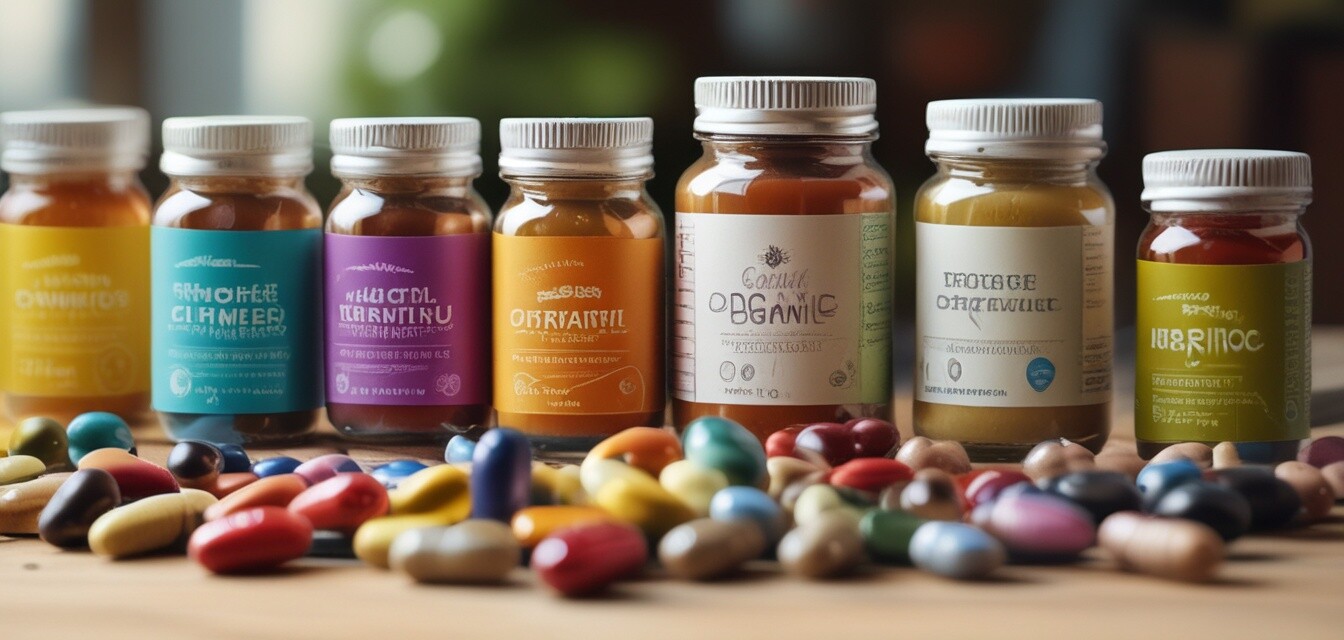
Best Organic Supplements for Daily Health
Key Takeaways
- Choosing organic supplements supports ethical sourcing and sustainable practices.
- Look for certifications like USDA Organic, Non-GMO, and Fair Trade.
- Always read labels to understand ingredients and sourcing.
- Consider your health needs when selecting supplements.
- Explore various categories, including herbal, multivitamins, and vegan options.
Finding the right organic supplements for daily health can seem daunting, particularly with the multitude of options available in the market. However, understanding the essential factors regarding their sourcing, ingredient quality, and sustainability can help you navigate this landscape effectively. In this article, we will explore the various types of organic supplements, what to consider when selecting them, and provide a guide to making informed choices.
The importance of organic supplements
Organic supplements are derived from naturally grown plants and herbs that are cultivated without synthetic fertilizers, pesticides, or genetically modified organisms. Opting for organic supplements supports sustainable agricultural practices and minimizes your exposure to chemical additives. Below are some additional benefits of integrating organic supplements into your daily routine:
- Higher nutrient density compared to non-organic varieties
- Reduced environmental impact through sustainable farming methods
- Support for local farmers and communities
- Better quality control from reputable brands
Factors to consider when choosing organic supplements
When selecting the best organic supplements, consider the following factors:
Beginner's Section
- Read the label: Always check for certifications like USDA Organic or Non-GMO.
- Research the brand: Look for transparency in ingredient sourcing and manufacturing processes.
- Identify your needs: Understand what nutrients or benefits you are looking for.
- Check for allergens: Ensure that the product doesn’t contain any allergens that may affect you.
Types of organic supplements
Below is a table listing some common types of organic supplements along with their key features:
| Type | Key Features |
|---|---|
| Herbal Supplements | Derived from plants; traditionally used for their health benefits. |
| Multivitamins | Comprehensive blend of vitamins and minerals; supports overall health. |
| Omega-3 Supplements | Rich in essential fatty acids; supports heart and brain health. |
| Protein Supplements | Can be derived from plants or animals; aids in muscle recovery and maintenance. |
| Vegan Supplements | Free from animal products; ideal for plant-based diets. |
Sustainability credentials
Getting to know a supplement's sustainability credentials is an essential aspect of supporting responsible businesses. Always look out for brands that demonstrate:
- Eco-friendly packaging materials
- Partnerships with sustainable farms
- Transparent supply chains
- Community support initiatives
How to incorporate organic supplements into your daily routine
Here are a few suggestions on how to seamlessly integrate organic supplements into your daily regimen:
- Choose a routine: Take your supplements at the same time every day to make it a habit.
- Pair with meals: Some supplements are better absorbed when taken with food, so it’s best to consume them during meals.
- Stay consistent: Consistency is key in seeing potential benefits; make it part of your lifestyle.
Where to buy organic supplements
Organic supplements can be purchased from a variety of sources. Here are a few recommended options:
- Health food stores: Often have a dedicated organic section with knowledgeable staff.
- Online retailers: Many websites specialize in organic products and offer a wide selection.
- Local farmers' markets: Sometimes feature locally grown supplements and herbs.
Pros
- Support for ethical and sustainable practices.
- Higher nutrient quality compared to conventional options.
- Availability of a wide variety of formulations.
Cons
- Potentially higher cost than non-organic supplements.
- Limited availability in some areas.
- May require research to find quality brands.
Conclusion
Organic supplements offer a unique opportunity to support your health while also contributing to the well-being of the planet. By choosing products that are ethically sourced and sustainably produced, you are taking proactive steps toward a healthier lifestyle and a more sustainable world. Remember to consult with knowledgeable sources, conduct your research, and find the supplements that align with your personal health goals. Whether you’re new to supplements or looking to expand your regimen, we hope this guide serves you well!
For more insights on various supplement categories, visit our pages on herbal supplements, multivitamins, omega-3 supplements, protein supplements, and vegan supplements.